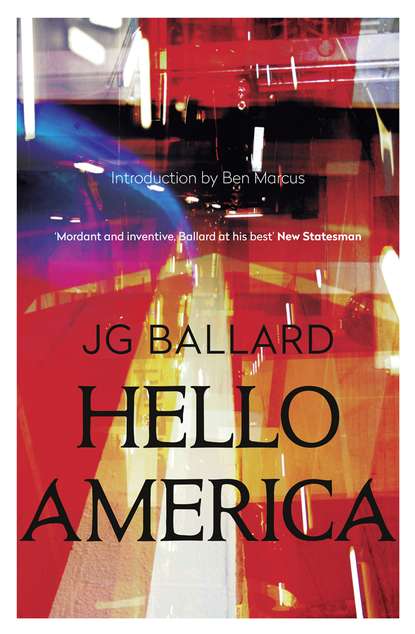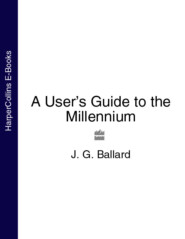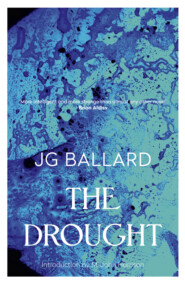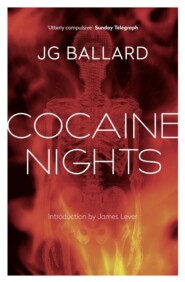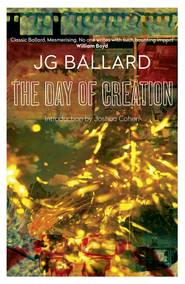По всем вопросам обращайтесь на: info@litportal.ru
(©) 2003-2024.
✖
Hello America
Автор
Год написания книги
2018
Настройки чтения
Размер шрифта
Высота строк
Поля
Then Wayne heard little Orlowski, the expedition leader, calling impatiently to Captain Steiner for more steam. Orlowski’s voice had temporarily lost the American accent that had snaked in over his Kiev vowels during the voyage. Through his miniature pocket megaphone he bellowed:
‘Full ahead, Captain! We’re all waiting for you! Don’t change your mind now…’
But Steiner, as always, was taking his own time. He stood in the centre of his bridge beside the helmsman, legs well apart, calmly contemplating the golden shore like an experienced traveller outstaring a mirage. A stocky, compact man with curiously sensitive hands, he was now in his mid-forties, and had served in the Israeli Navy for nearly twenty years. Keen chess-player who never gave away a move, amateur mathematician and expert navigator, he had intrigued Wayne from their first meeting, as he peered up from the overturned gig into the Captain’s wry gaze.
Wayne was certain that Steiner, like everyone else on board the Apollo, harboured secret ambitions of his own. After his discovery in the rowing-boat, the Captain had ordered Wayne down to his cabin. As Steiner locked away Dr Ricci’s confiscated pistol in the safe, Wayne had glimpsed a neatly tied bundle of ancient Time and Look magazines on the shelf below the bullion box. Their brown pages were compressed like copper leaf, fossils of an America that had vanished a hundred years ago. Then, two weeks out of Plymouth, during one of the long calms, Steiner called Wayne back to his cabin after the stowaway had brought his supper from the galley.
‘It’s all right, Wayne…’ Steiner smiled with some amusement at this seaborne Tom Sawyer, with his thatch of blond hair, legs like stilts, eyes lit by all kinds of strange dreams. Wayne was trembling with excitement as he faced the Captain – both Ricci and Professor Summers had been urging Orlowski to re-route the Apollo’s passage so that they could put Wayne ashore at the Azores.
‘Wayne, calm down. You look as if you’re about to take over the ship.’ Could he already see Wayne’s aggressiveness in his broad shoulders, in the thickening bones of his forehead and jaw? ‘You’ll be glad to hear we’re not calling in at the Azores. But I want to show you something else.’
Leaving his supper uneaten, Steiner opened the safe and quietly unwrapped the Time and Look magazines. He turned the faded pages, showing Wayne the illustrations of the Cape Kennedy Space Center, the Space Shuttle landing at Edwards Air Force Base after a test flight, and the recovery of an Apollo capsule from the Pacific. There was a special bicentennial supplement celebrating every aspect of American life in the long-ago 1970s – the crowded streets of Washington on Carter’s Inauguration Day, long queues of holiday jets on the runways of Kennedy Airport, happy vacationers lying by the swimming-pools of Miami, raking the ski-slopes of Aspen, Colorado, fitting out their yachts in a huge marina at San Diego, all the enormous vitality of this once extraordinary nation preserved in these sepia photographs.
‘Well, Wayne, you want to go to America. Let’s see how much you know about it.’ Steiner sounded sceptical, but nodded encouragingly as Wayne moved from picture to picture:
‘That’s easy—the Golden Gate Bridge; Caesar’s Palace in Las Vegas; LA—Mann’s Chinese Theatre; Fisherman’s Wharf in Frisco; Detroit—the Edsel Ford Expressway. Any more, Captain?’
‘Not for now, Wayne. But that’s very good, you’re a stowaway with a difference. We’ll have to work together…’
Not one in a thousand Europeans of Wayne’s age would have had the faintest idea what these ancient scenic views represented. Sadly, Europe, Asia and the rest of the populated world had long since lost interest in America. But clearly Steiner had guessed that Wayne would recognise them. As he locked away the magazines he remarked:
‘With luck you’ll be seeing them soon. Tell me, Wayne, from where in the United States did your family originally come?’ He glanced at Wayne’s long-boned figure, child-like straw hair. ‘Kansas, the Midwest somewhere? You look like a Texan…’
‘New England!’ Wayne lied before stopping himself. ‘Jamestown. My great-grandfather ran a hardware store.’
‘Jamestown?’ Steiner nodded sagely, careful not to smile as he beckoned Wayne to the door. ‘Well, you’re going back to the beginning, all right. Perhaps you’ll start everything up again, Wayne. You could even be President. From stowaway to the White House, stranger things have happened.’ He gazed thoughtfully at Wayne, his shrewd, navigator’s face almost serious, set in a curious expression Wayne was to remember for ever.
‘Think, Wayne – the forty-fifth President of the United States…’
2 Collision Course (#ulink_05e83808-3647-557b-918e-4aafc788439d)
Why had he lied to Steiner?
Taking his eyes off the golden shore in front of him, Wayne looked up at the bridge, where Steiner stood beside the helmsman, binoculars raised to scan the flat water of the channel. Wayne angrily drummed his right hand on the rail. He could have told the truth, the Captain would have been sympathetic, he was something of an outcast himself, this sea-wandering Jew who had turned his back on his own true nation. Why hadn’t he blurted out: I don’t know where I came from, who my father was, let alone my grandparents. My mother died five years ago, after spending half her life as a psychiatric outpatient and the rest as a barely competent secretary at the American University in Dublin. All she left me were years of rambling fantasy and a blank space on my birth certificate. Tell me, Captain, who I am…
A sharp spray rose from the cutwater of the Apollo and stung Wayne’s cheeks. Steiner was ringing down to the engine-room for more steam, and the ship gained speed across the bay, drawn towards the magnetic coast as if by the heavier gravity of this land of dreams. Remembering Steiner’s words – the forty-fifth President? – Wayne thought of his mother again. During her last years in the asylum she often rambled about Wayne’s real father, variously Henry Ford V; the last US President-in-Exile, President Brown (a devoutly religious nonagenarian who had died sixty years before Wayne’s birth in a Zen monastery in Osaka); and a long-forgotten folk singer named Bob Dylan, one of whose records she endlessly played beside her bed on a hand-cranked gramophone.
But once, during a brief moment of lucidity while recovering from an overdose of Seconal, his mother fixed Wayne with a calm eye and told him that his father had been Dr William Fleming, Professor of Computer Sciences at the American University, who had vanished during an ill-fated expedition to the United States twenty years earlier.
Wayne had thought nothing of this odd confession. But while going through the unhappy muddle of his mother’s possessions after her death – a mad antique shop of costume jewellery, newspaper clippings and drug vials—he had come across a ribbon-wrapped set of postcards, signed by Dr Fleming and postmarked ‘Southampton, England’, the expedition’s point of departure. The tone of these brief but intimate messages, the repeated mention of being back for ‘the great day’, and the solicitous interest in this young secretary’s pregnancy had together sown their seed in Wayne’s mind.
Was his obsession with America, which his unknown ancestors had abandoned a century earlier, was his determination to return to this lost continent merely an attempt to find his true father? Or had he invented the quest for his father in order to give his obsession some kind of romantic meaning?
Did it matter now? Wayne pulled himself from his thoughts and gazed through the quickening spray at the Manhattan skyline rising towards him across the vivid water. Like his unknown ancestors centuries before him, he had come to America to forget the past, to turn his back for ever on an exhausted Europe. For the first time since he had stowed aboard the Apollo, Wayne felt a sudden sense of companionship, almost of commitment to his fellow passengers who had braved the long voyage with him.
On either side of him people were pressed against the rail, ignoring the spray whipped up by the rusty bows, members of the crew and the scientific expedition elbow to elbow. Even Dr Paul Ricci for once failed to annoy Wayne. The dapper, self-immersed nuclear physicist was the one member of the expedition whom Wayne disliked – a dozen times during the voyage he had strolled up behind Wayne as he worked in the log-room over the old street-maps of Manhattan and Washington, implying with a smirk that the whole of the United States was already his territory. He now stood beside Professor Summers, calling out landmarks to her.
‘There’s the Ford Building, Anne, and the Arab Quarter. If you look closely you can see the Lincoln Memorial…’
Had his grandparents ever lived in Manhattan, as he claimed? Wayne was about to correct him, but everyone had fallen silent. Orlowski, the expedition commissar, stood next to Wayne, holding the mainmast shrouds as if frightened that the increased speed of the Apollo might lift him off his little feet and carry him away over the topsails. Ricci had placed his arm around Professor Summers’s waist, his ludicrous commentary ended, protecting himself behind her from the golden shore.
For once, Anne Summers made no effort to push him away. Despite the spray, her severe make-up remained in place, but the wind had begun to unravel the blonde hair which she kept tightly rolled in a bun. For all her efforts, Wayne reflected, the long voyage had freshened her Saxon complexion and given her toneless face and high, pale forehead an almost schoolgirlish glow. Wayne was her greatest admirer. Once, to her annoyance, he had entered the radiology lab without knocking and found her immersed in a small mirror, combing her hair to its breathtaking waist length, her face made up like a film actress of old, a screen goddess dreaming among her reaction columns and radiation counters. She had snapped out of the reverie soon enough, swearing at Wayne in a surprisingly guttural American which recalled McNair’s quiet comment that she had changed her name from Sommer half an hour before the Apollo sailed from Plymouth.
But now the serene, far-away look had returned. She leaned against Ricci’s arm, and even had time for a reassuring smile at Wayne.
‘Professor Summers, is gold dust dangerous to inhale?’ Wayne asked. ‘It could be radioactive.’
‘Gold, Wayne?’ She laughed knowingly at the glittering shore. ‘Don’t worry, I think the transmutation of metals takes rather more than strong sunlight…’
Yet something was amiss. For no clear reason Wayne backed away from the rail. Shielding his eyes from the glare, he crossed the deck and climbed the metal ladder to the roof of the stables. Below him the twenty mules and baggage horses stirred restlessly in their stalls, whinnying to each other through the shafts of overbright sunlight. Wayne steadied himself against the ventilator, trying to identify this curious presentiment of danger. After the long journey across the Atlantic, was he losing his nerve at the prospect of actually setting foot on America? He searched the rigging and the surrounding sea, peering through the smoke at the Brooklyn and Jersey shorelines.
Conspicuously, the only composed person aboard the Apollo was Captain Steiner. As everyone crowded the rail, cheering on the approaching land, Steiner stood beside the helmsman, binoculars fixed on a small patch of open water a hundred yards ahead of them. Checking their speed, he glanced at Wayne in an almost conspiratorial way. The Apollo was now racing like a twelve-metre sloop through the choppy water, the ancient steam engines ready to burst the decks. The horses staggered in their stalls, thrown about by the surging motion of the ship. Steiner had crammed every square foot of sail on to the yards, as if this cautious ocean-navigator had decided to end his voyage with a yachtsman’s flourish.
Already they were passing the first of the sunken refugee ships in the harbour. Dozens of the rusty hulks sat in the bay around the lower tip of Manhattan, masts and superstructures above the water, relics of the panic a century earlier when America had finally abandoned itself. In the mosaics of flaking paint that clung to the riddled funnels Wayne could make out the livery of long-forgotten lines-Cunard, Holland-America, P & O. Even the SS United States was there, lying on its side below the Battery, called out of its retirement at Coney Island to ferry tens of thousands of fleeing Americans as the cities emptied and the deserts crept eastwards across the continent. The mouth of the East River was blocked by a boom of sunken freighters, the last of a mournful fleet of vessels chartered from the world’s ports and then abandoned here when there was no fuel left to bunker them for the Atlantic voyage. New York harbour then had been a place of fear, exhaustion and despair. Wayne stared through the curtains of rainbowing spray that lifted off the starboard bow. The Apollo changed course to avoid the tilting flight-deck of the USS Nimitz. The huge nuclear-powered aircraft carrier had been scuttled here by its mutinous crew when they refused to fire on the thousands of small boats and makeshift rafts that jammed its harbour exit. Wayne remembered the photographs and grainy film strips of those last frantic days of the evacuation of America, when the latecomers, millions of them by then from the Middle West and the states around the Great Lakes, had arrived in New York. They moved through the streets of Manhattan, the sun and the desert only a few days behind them, to find that the last evacuation ships had left.
‘Captain Steiner! We’re there, Captain – you don’t need to break our necks…’ As a bow wave splashed across the deck Orlowski wiped his plump face on his sleeve. He called out again to the Captain, his voice lost in the drumming of the engines and the boom of the funnel, the cracking sails drenched with soot and spray.
But Steiner ignored the commissar. He swayed lightly on his sturdy legs, eyes fixed in an almost mesmerised way on the wreck-strewn water in front of them, a demented sea-captain in an opera. As the Apollo leapt through the spray, porpoising over the black, spit-flecked waves, Wayne clung to the ventilation shaft above the nervous horses. The afternoon sunlight glared down at them from the thousands of silent windows in the downtown office blocks, and off the almost liquid back of the gold dust gleaming in the streets. Suddenly it occurred to Wayne that perhaps the entire Fort Knox reserves lay on the quayside, abandoned there by the last army units before they could be shipped to Europe.
‘Captain Steiner – three fathoms!’
As the Apollo ran down the last of the water there was a shout from the two seamen trying to swing a plumb-line in the bows.
‘Captain – hard to port! There’s a reef!’
‘Astern, Captain! She’ll break her keel!’
‘Captain?’
3 A Drowned Mermaid (#ulink_6d08917b-d4c3-5b93-a108-bcd8dcfddbf2)
Sailors were running in panic across the decks. A petty officer collided with Dr Ricci as he flinched from the rail. Professor Summers waved warningly to Steiner, while two midshipmen scrambled into the main-mast shrouds, trying to find safety in the sky.
The Apollo had lost momentum, its speed cut by half. The sails slackened, and in the silence Wayne heard only the smoke pounding from the hot funnel behind him. Then there was a low, jarring noise, as if an iron blade was scraping the hull. The ship gave a small shudder, leaning on its starboard side like an injured whale. Almost motionless in the water, it swung slowly in the wind as the propeller screwed a torrent of boiling foam around the stern.
Everyone rushed back to the rail. The horses staggered to their feet in the stables, and their nasal bleating rose above the noise of the engines. Wayne jumped down on to the deck and pushed between Ricci and Anne Summers. The sailors were shouting to each other and pointing to the water, but Wayne looked back at the Captain. As the helmsman picked himself off the deck, nursing his bruised knees, Steiner had matter-of-factly taken the wheel. The Apollo swung clockwise in the water, its sails limp in the calming air. Steiner stared at the great towers of Manhattan now less than half a mile away. It seemed to Wayne that the Captain had never looked happier. Had he made the long uncertain voyage across the Atlantic secretly determined to sink his ship these few hundred yards from their goal, so that they would all perish and he could plunder alone the treasures of this waiting land?
‘Wayne, lying down there, can you see?’ Wayne felt Anne Summers seize his arm. ‘There’s a sleeping mermaid!’
Wayne peered into the water. The Apollo’s propeller had stopped, and the mass of churning bubbles dissolved in the water that swilled against the hull. Lying on her back beside the ship, like its drowned bride, was the statue of an immense reclining woman. Almost as long as the Apollo, she rested on a bed of concrete blocks, the ruins of an underwater plinth. Her classical features were only a few feet below the surface. Washed by the waves, her grey face reminded Wayne of his dead mother’s when he gazed into her open coffin in the asylum mortuary.
‘Wayne, who is she?’ Anne Summers stared at the impassive face. A colony of lobsters had taken up residence in the woman’s nostrils. As they emerged from their domain, peering up at the dripping bulk of the Apollo, Anne held her handsome nose. ‘Wayne, she must be some kind of goddess…’
Paul Ricci squeezed between them. ‘A local marine deity,’ he suavely informed them. ‘The Americans of the eastern seaboard worshipped a pantheon of underwater creatures – you’ll remember Moby Dick, Hemingway’s Old Man and the Sea, even the great white shark affectionately christened “Jaws”.’
Anne Summers stared doubtfully at the statue. She moved her hand from Ricci’s. ‘Rather a fierce form of worship, Paul, not to mention a hazard to shipping.’ She added, as an afterthought: ‘I think we’re sinking.’
Sure enough, a clamour of shouts had begun.





